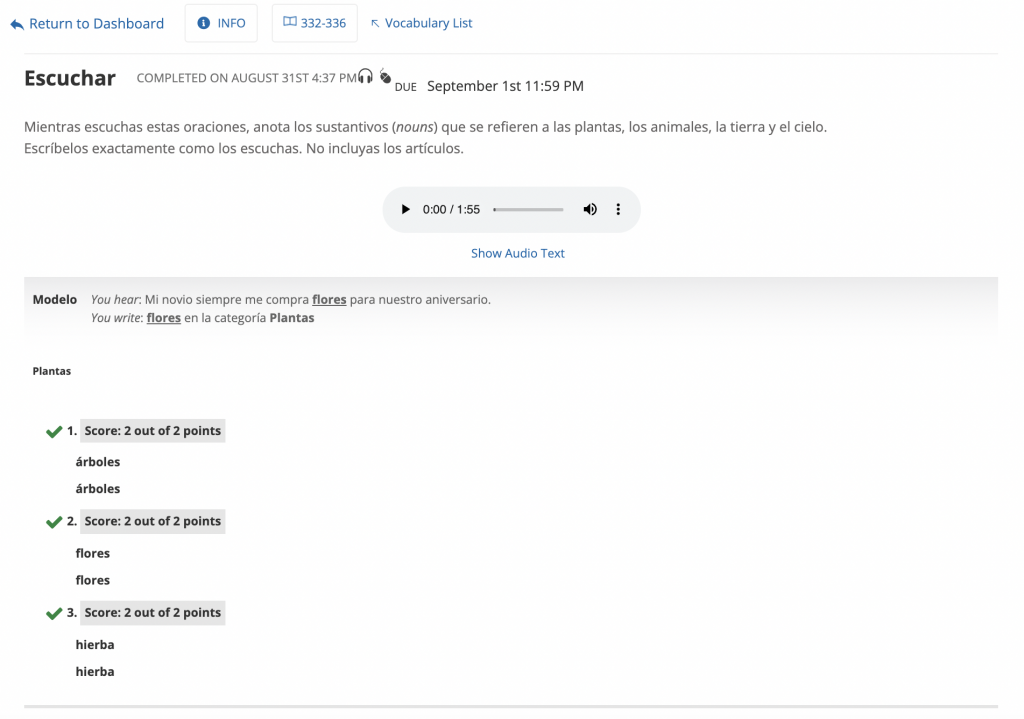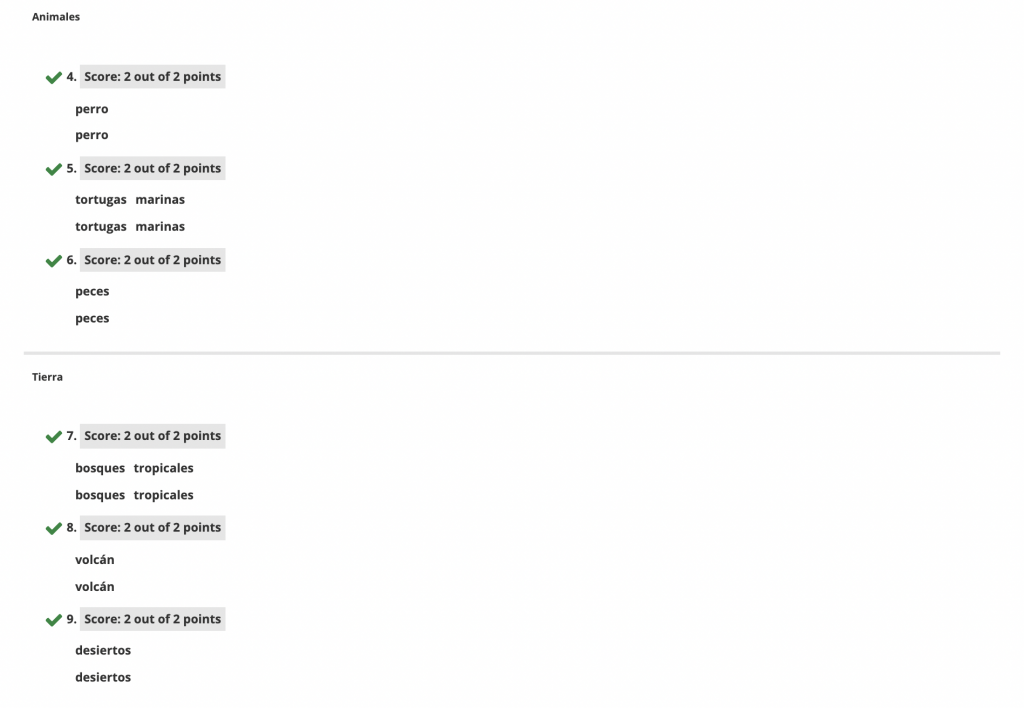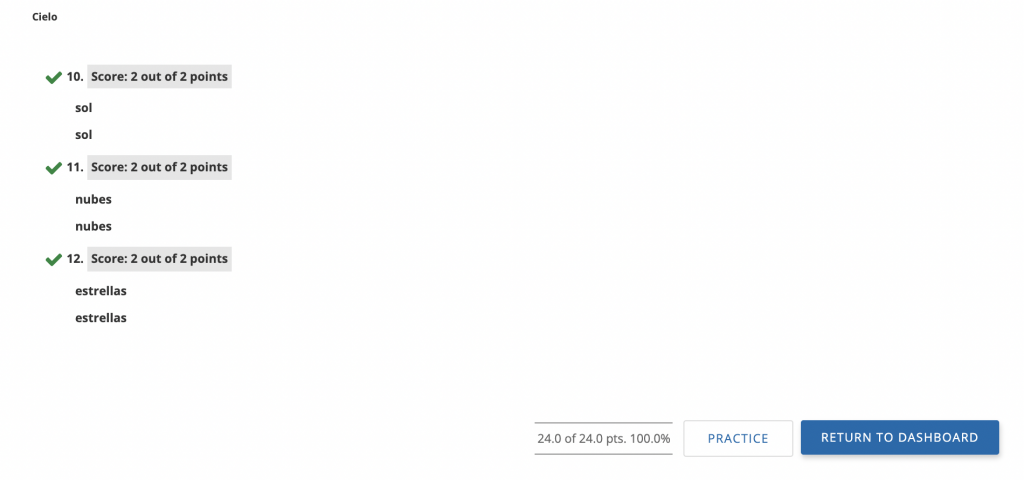Exploring Culture
Exploring and learning about different cultures is a great avenue to learn about different traditions and beliefs. In Spanish 202 we watched various Flash Cultura videos that taught us about history in different Spanish speaking countries such as Mexico and Spain.
Engaging in Communities
When you engage in your community, it opens doors for you to learn more about your neighbors and those around you, such as where they are from, what language they speak, and what traditions and cultures they practice. It helps you become more knowledgable about different parts of the world and gives you new viewpoints on things you may not of thought about or knew before.
Interpersonal Communication
This semester I completed two TalkAbroad assignments. My first TalkAbroad conversation was about the city and my second TalkAbroad conversation was about careers.
During my first conversation we spoke about pollution and what we thought could be done to fix it such as what the government could do better like passing laws that addresses the issue and what individuals can do such as recycling.
I get incredibly nervous during my conversation and forget how to say what I want to say. I struggle with remembering the correct conjugation of verbs and what tense to use when speaking. I try to be better at this by taking my time when I speak and reviewing what I have learned in class to refresh my memory.
Attached below are my reflections from both of my conversations.
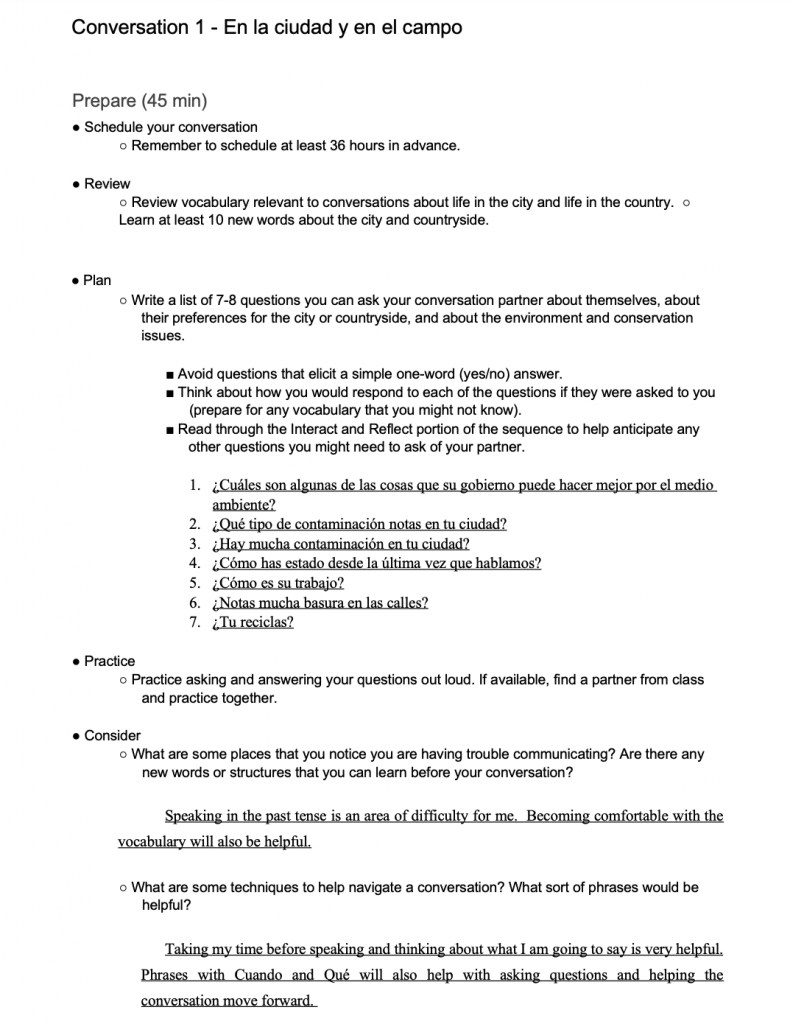
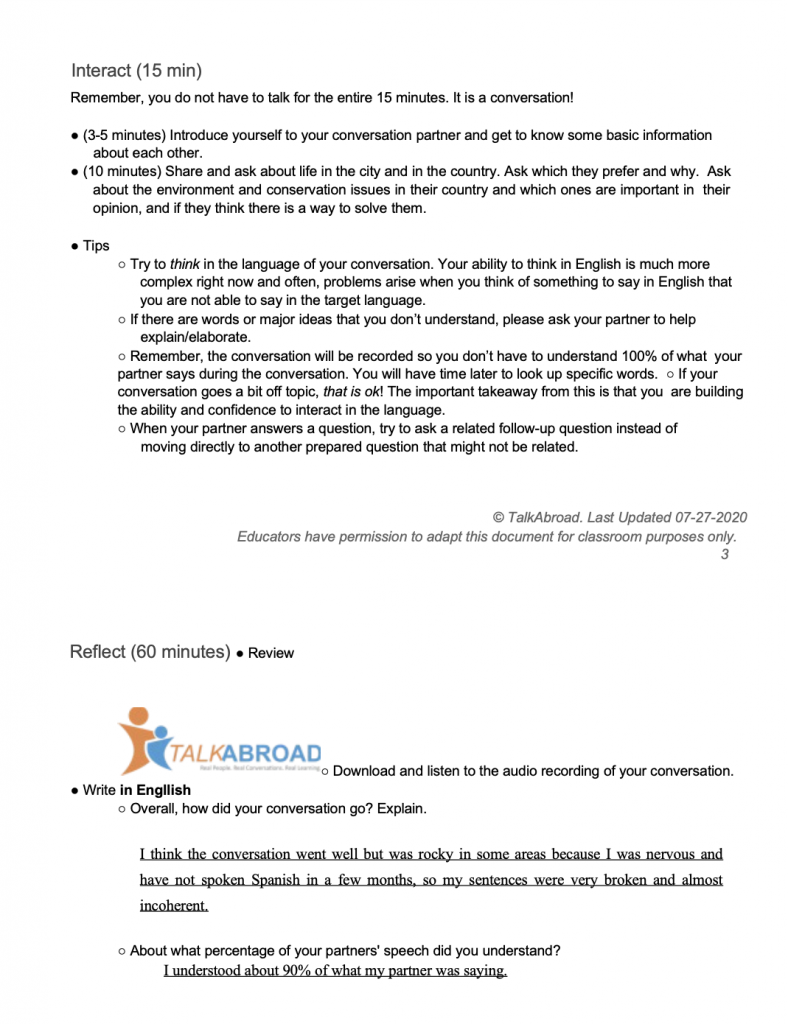
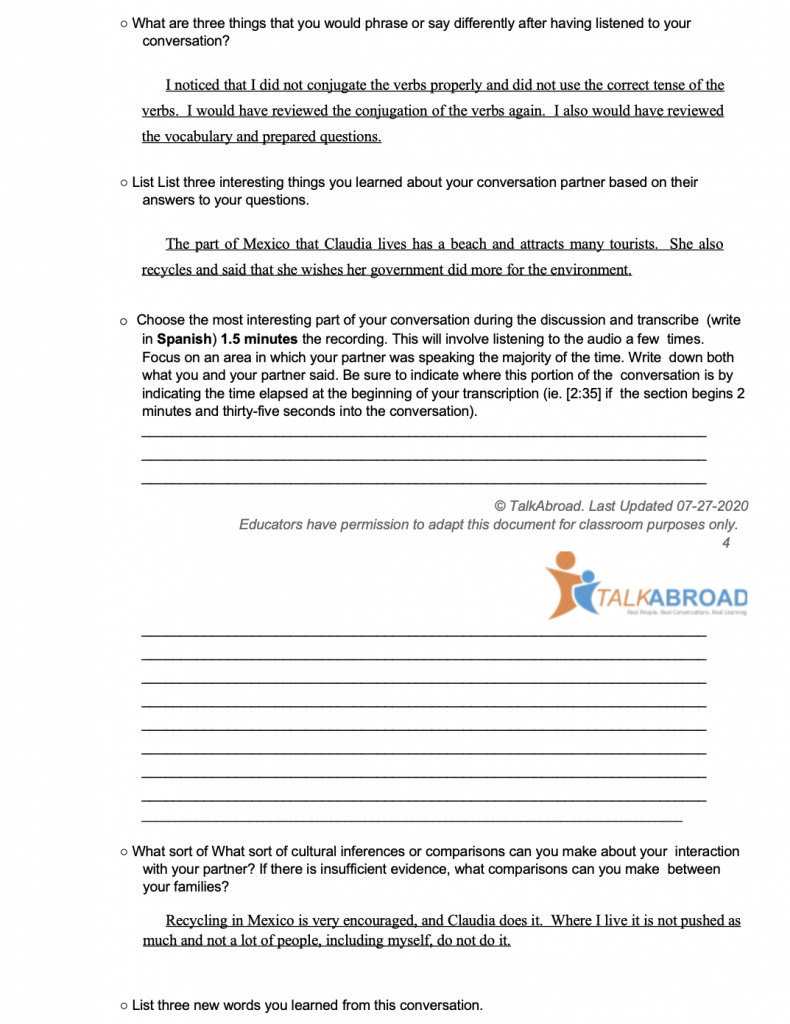
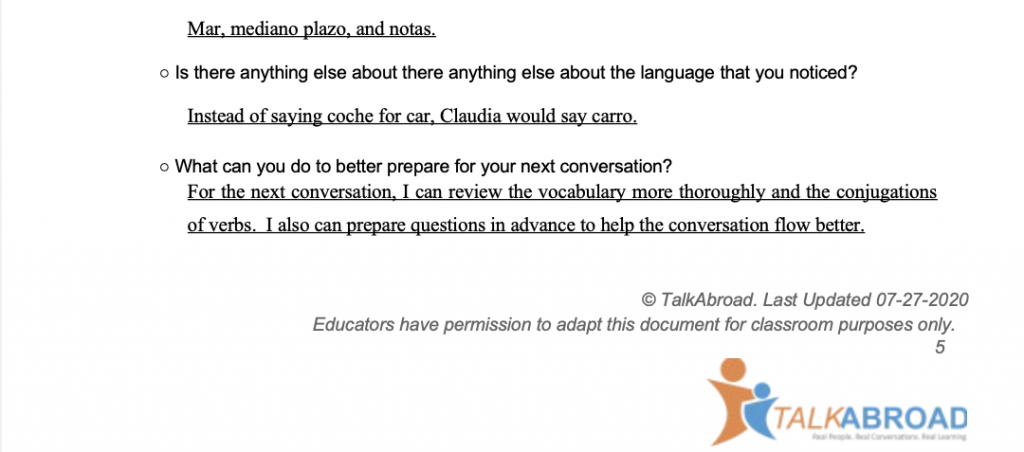
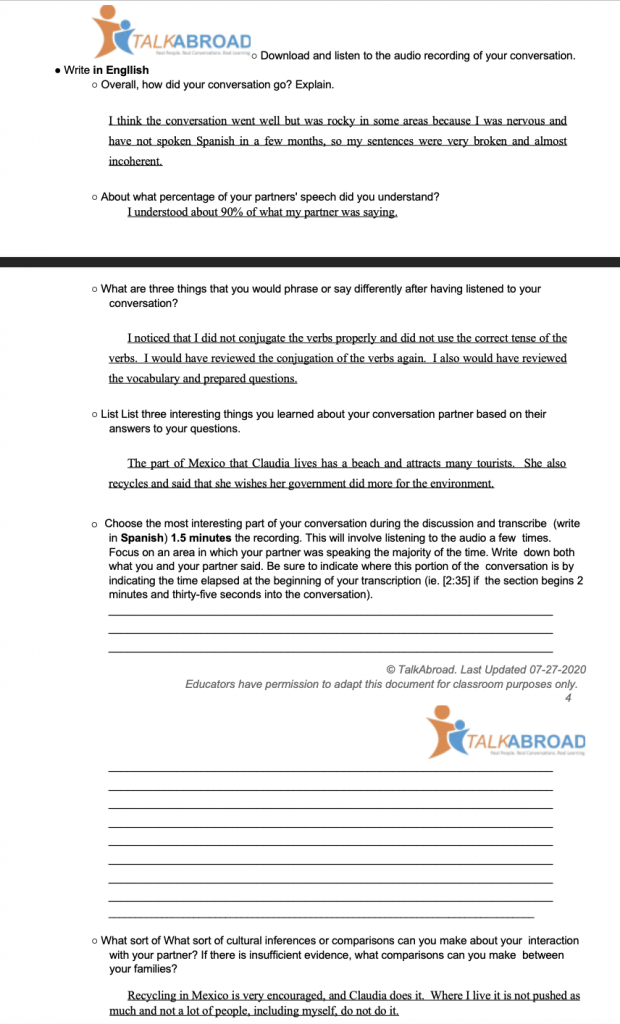
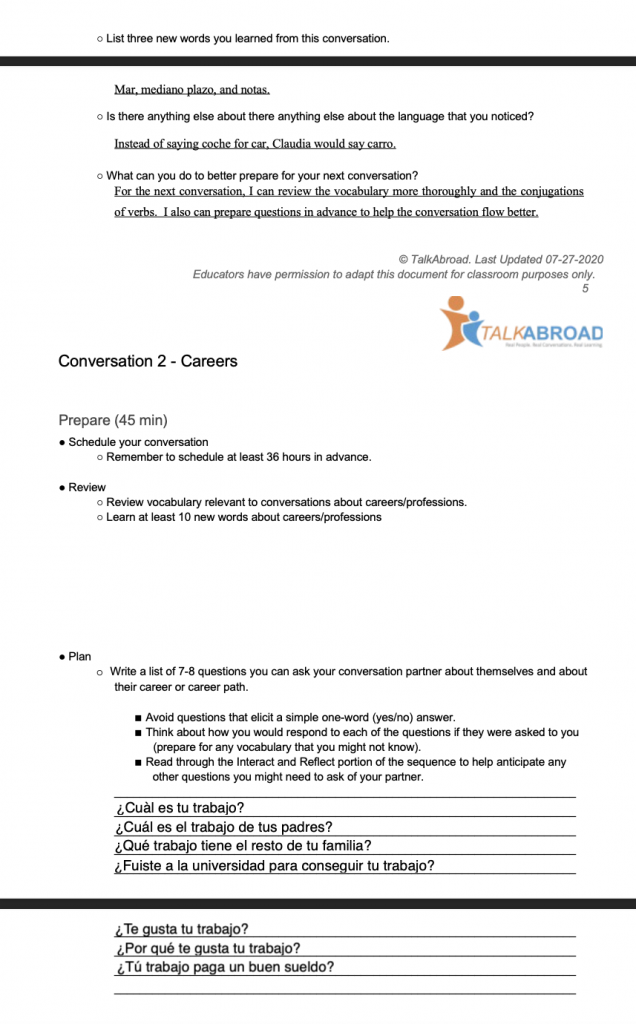
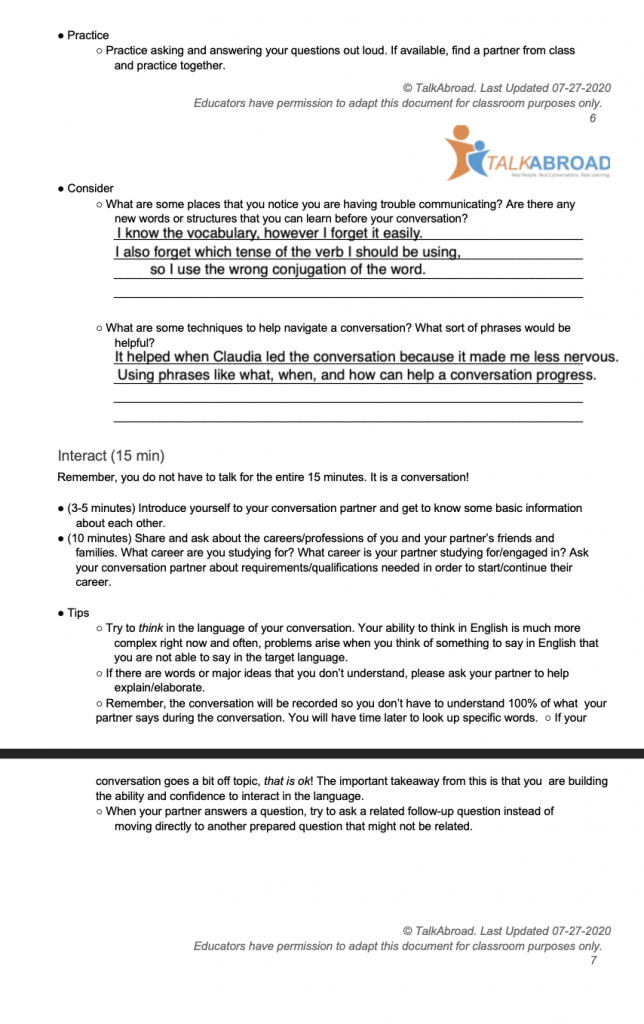
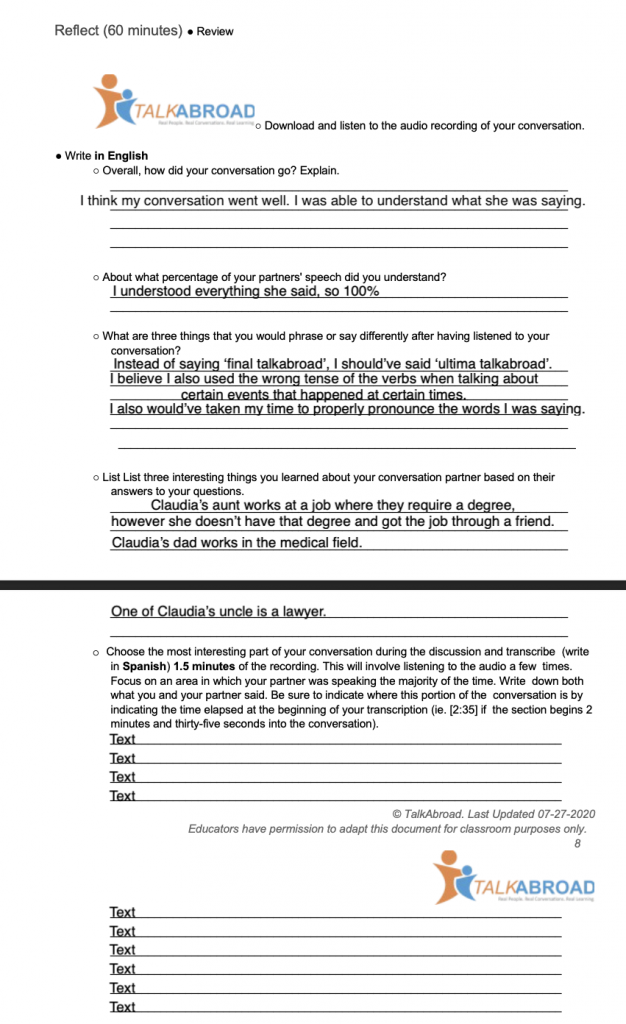
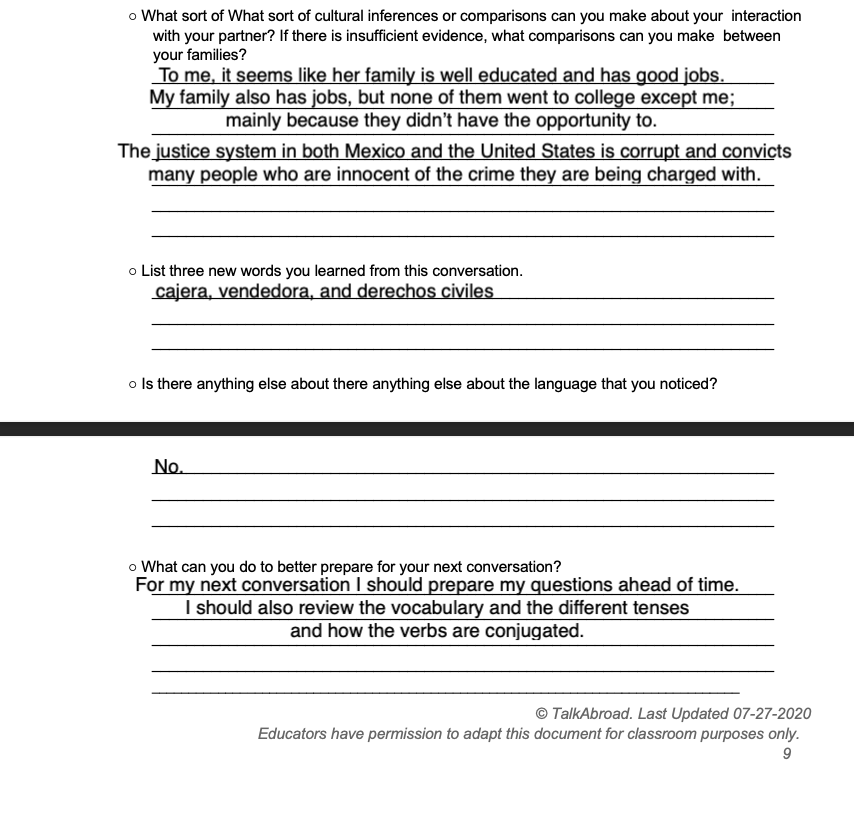
Presentational Speaking
On the VHL website we had to complete various speaking assignments such as oral parts of our exams. Attached below are three of my oral exams for Spanish 202 where I answered questions about the environment, places in the city, and how to live a healthy life.
In order to do well on these assignments I reviewed the questions and wrote my answers ahead of recording myself so I was efficient at speaking and pronouncing my words properly.
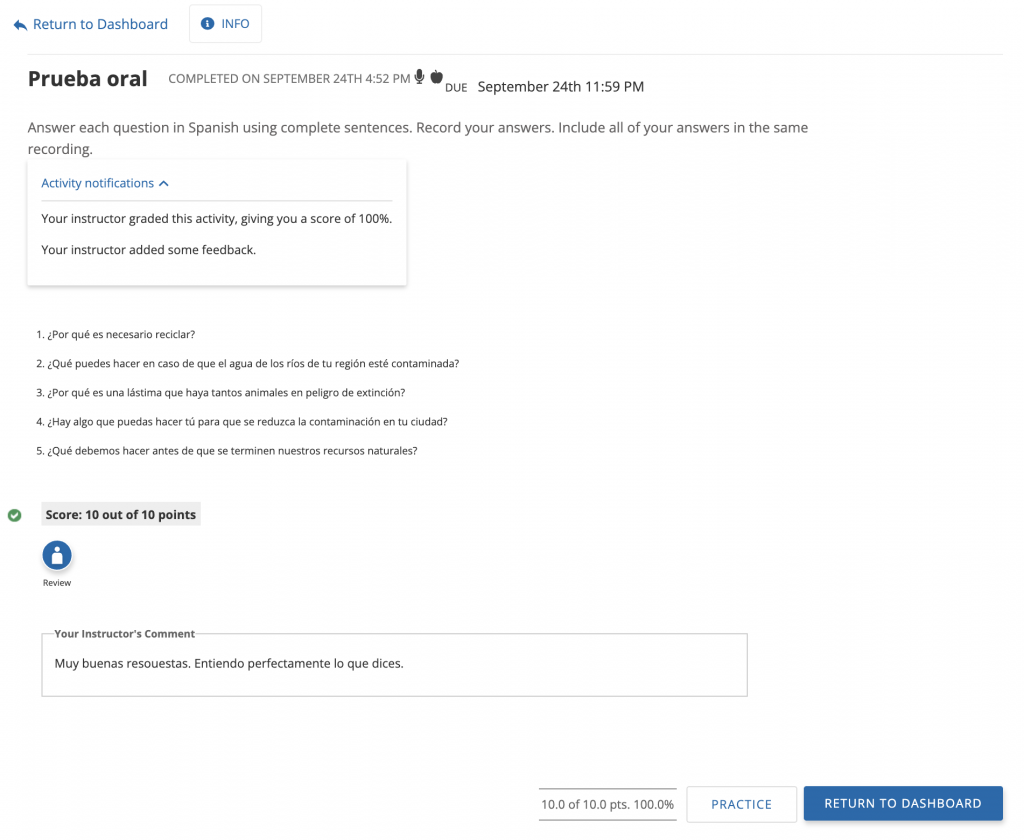
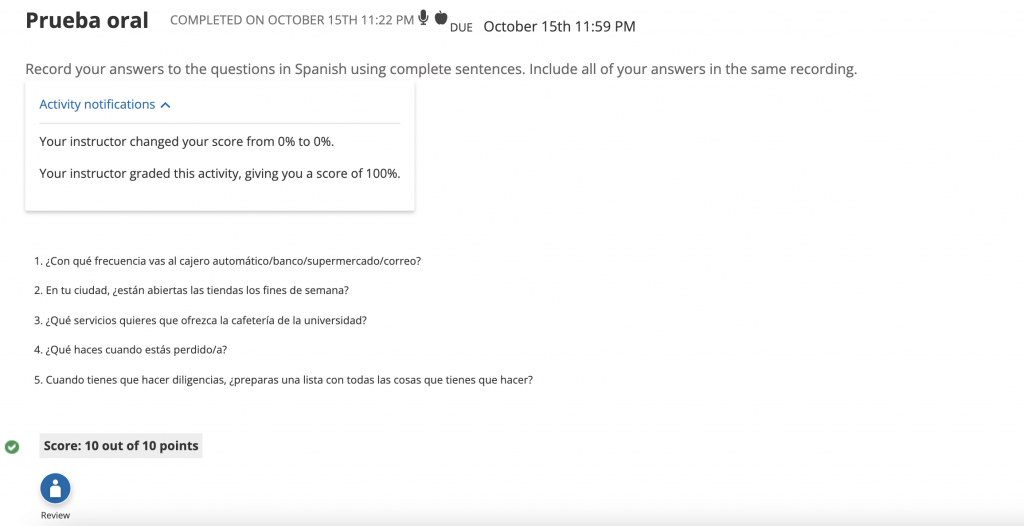
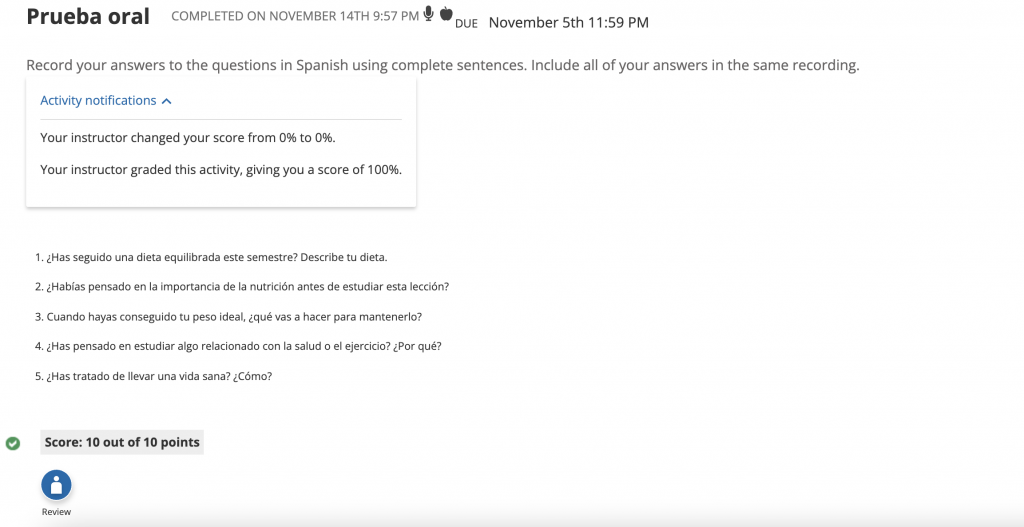
Interpretive Reading
Reading is very important when learning a language because without knowing how to read in that language, you are not able to respond to what it is saying. One of my reading assignments on the VHL website was about the Andes mountains in South America.
Attached below is the corresponding quiz about what I had read.
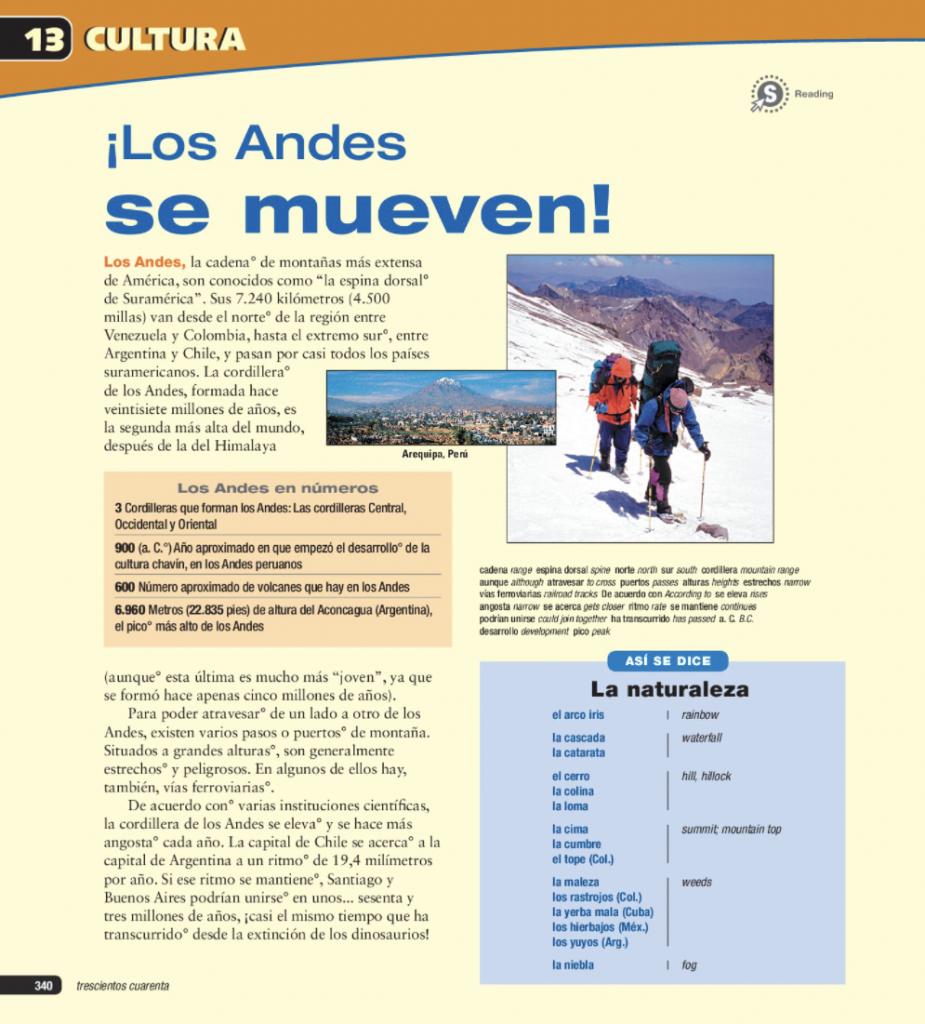
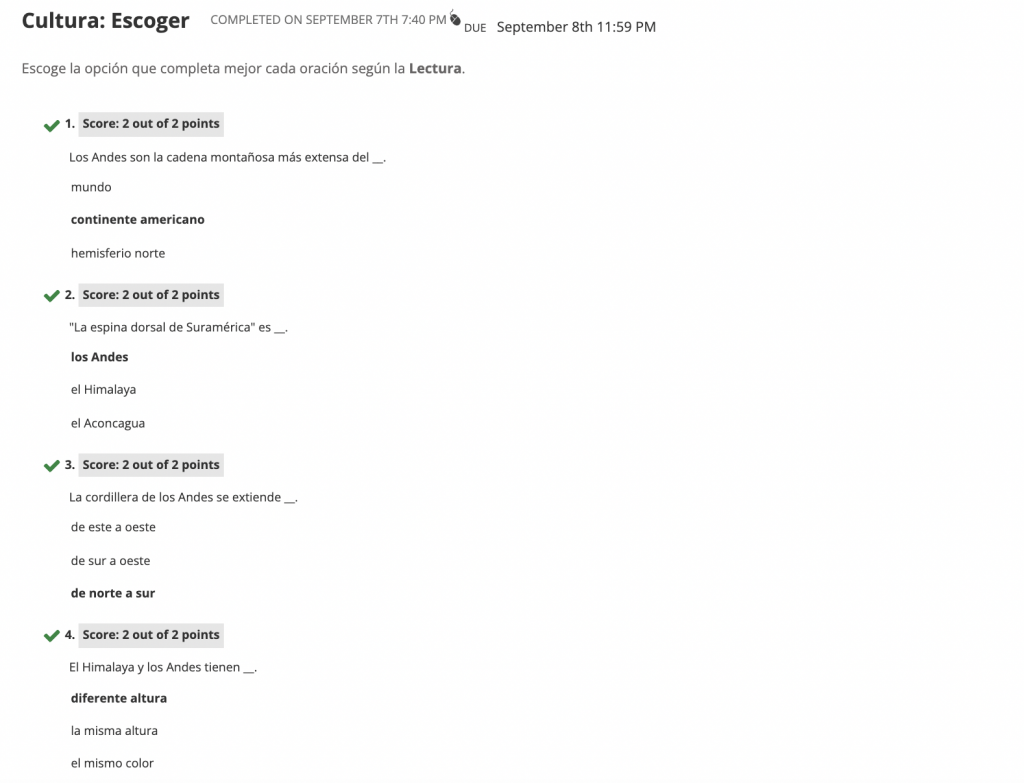

Presentational Writing
In Spanish 202 we had to write a composition. I chose to write about pollution in the environment. I wrote it in different parts; first I addressed who I was writing to and what I was writing to them about and then I wrote out my full letter. In this composition I wrote to the government to encourage them to write and pass better laws to protect the environment and reduce pollution.
Being able to write the composition in small sections that led to the main part of the composition made the process very easy to complete. I struggled with knowing which conjugation I should use for the verbs I was using.
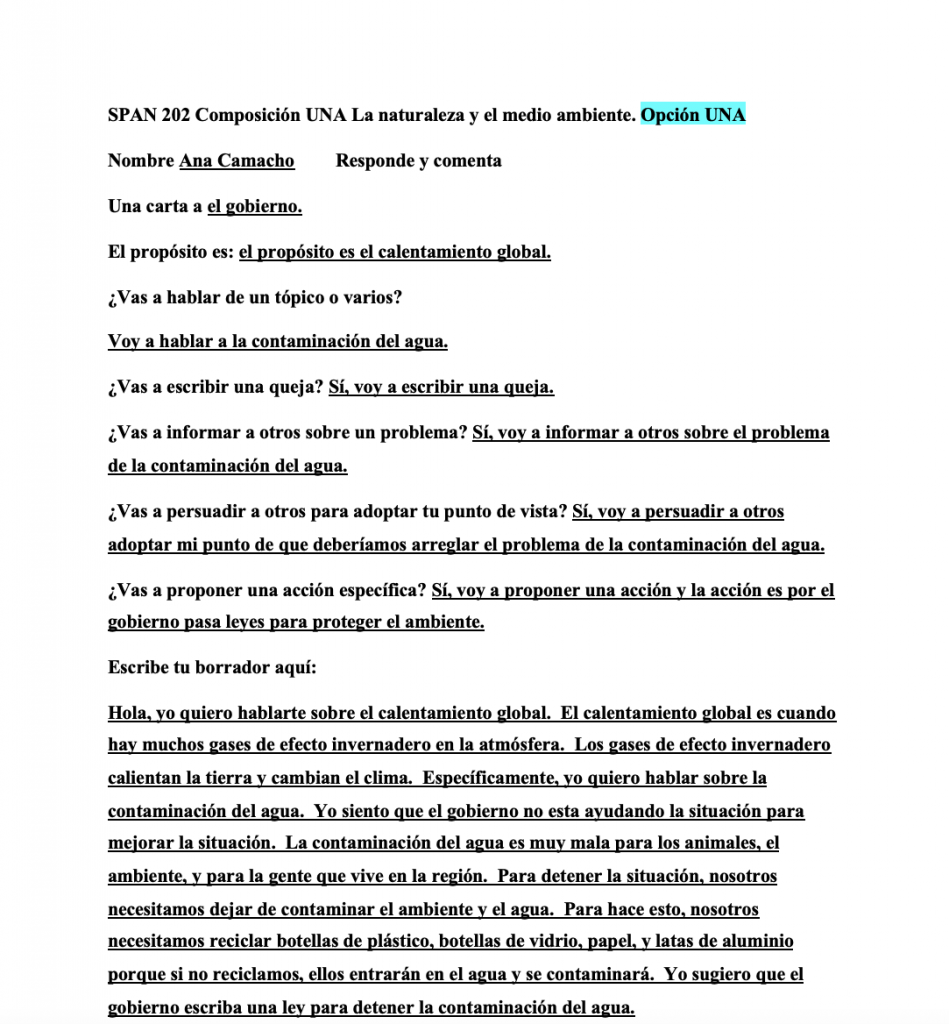
Interpretative Listening
Listening is also an important aspect of learning a language. Without knowing what the person is saying, you will not know how to respond or even know what they are saying. Attached below is a listening exercise I did on the VHL website. I had to listen to the recording and then write type what I had heard. Listening is what I am best at in Spanish and is the easiest thing for me to compared to writing or speaking.
